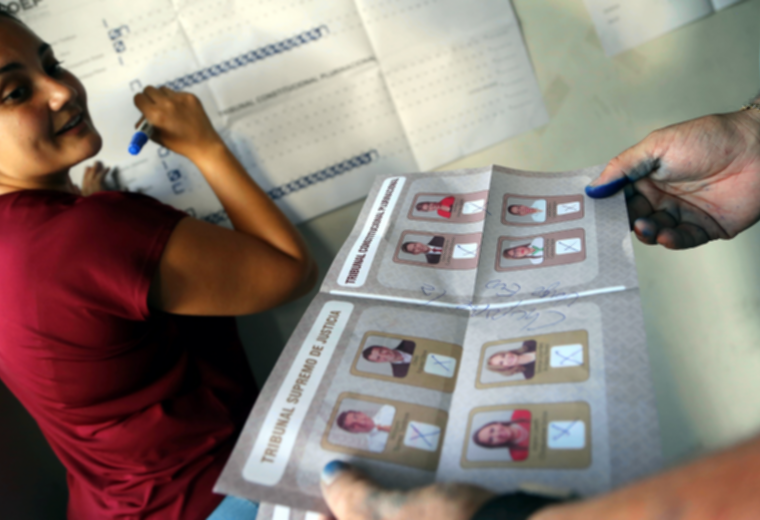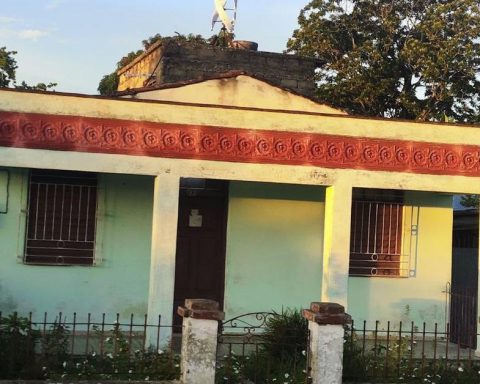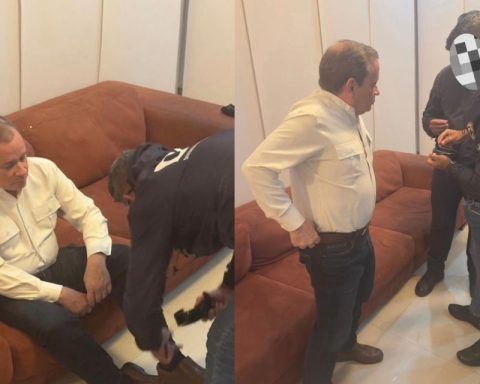February 23, 2023, 5:00 AM
February 23, 2023, 5:00 AM
The block of renovators of the MAS, the opponents and constitutional lawyers consider the proposal of the deputy evista unfeasible and illegal Renán Cabezas, to elaborate a short law to temporarily appoint the high authorities of the Judicial Branch, in the event that the candidate pre-selection process stagnates in the Plurinational Legislative Assembly, as happened with the Ombudsman between June and September from last year.
“This decree or bill is devastating because there is a too clear violation of the Constitution. The jurisprudence tells us that the way to preselect magistrates is via the Legislative Assembly through two-thirds validation of votes. But in no way could you give rise to a decree or law because it is unconstitutional”, Senator Andrea Barrientos, from Comunidad Ciudadana (CC), declared to EL DEBER.
For the legislator, promoting any of these two alternatives implies a blow to the Legislative Branch because it represents an interference with their functions.
The Magna Carta establishes in its article 182 that the magistrates and magistrates of the Supreme Court of Justice will be elected by universal suffrage.
It also states that “the Plurinational Legislative Assembly will carry out by two thirds of its members present the pre-selection of the applicants for each department and will send the Electoral Body the list of the pre-qualified so that it can proceed to the organization, unique and exclusive, of the electoral process”.
Félix Ajpi, a MAS senator, agreed with Barrientos and said that “the judicial authorities must be chosen accordingly” And he maintained that the proposal of his Masista colleague Cabezas to designate the magistrates by law is advanced since the call was not even launched nor did the pre-selection process begin.
“We only select the candidates and It is the Bolivian people who are going to give their vote of confidence for those who believe that they are good professionals and honest”, he stated without daring to say if the short law is viable or not.
On the contrary, the deputy of the arcist bloc Rolando Cuéllar said that there is no possibility of making a short law because it would go against the procedure framed in the CPE. He added that a good call must be prepared with the participation of the three political forces.
“A short law is not possible, it is not a way, when the selection and election of authorities of the Judicial Branch is framed in the Constitution.. There must be a call, all the requirements must be met, at this time the short law is not viable“, held.
The MAS legislators clarified that Renán Cabezas’ proposal is personal and is not in the name of the blue party, as well as confirmed by the deputy proponent and said that This approach is a “provision” in the event that two-thirds of the vote is not achieved due to the division of the MAS and the lack of consensus with the opposition.
“We have had a bitter experience with the election of the Ombudsman. In five laps we have not agreed to choose him. Given this background, pWe could get bogged down again and that is why I propose that we make a transitory law to elect interim magistrates”, the deputy explained to this medium.
He clarified that his proposal is not related to the extension of the mandate of the current magistrates, since the Political Constitution does not allow it and these authorities “were quite questioned.”
In July 2022, the Minister of Justice, Iván Lima, also opened the debate on a possible designation of the 26 judicial authorities by decreebased on the resolution of the Fourth Chamber of the Constitutional Court regarding a compliance action presented by the parallel Human Rights Assembly demanding the appointment of an Ombudsman.
“The work of the State cannot be interrupted, that is what the jurisprudence of the Constitutional Court indicates, therefore, the election of the Comptroller, the Ombudsman and the 26 Justice authorities are framed in that constitutional development. If the Legislative Assembly does not make the decision and the mandate to elect given by the Constitution, it will have to be another State Organ that takes emergency measures that have already occurred in previous periods,” Lima said then.
The minister argued that former President Carlos Mesa appointed magistrates by supreme decree, as did former President Evo Morales. “I’m not giving any new newswhen the Assembly does not make decisions, the Body that must decide the operation of the State is the Executive”, he pointed out.
Senator Andrea Barrientos highlighted that the decisions of Mesa and Morales were made before 2009, that is, when the current Constitution did not exist. According to the parliamentarian, what is viable is a law of guarantees to pass the competence of pre-selection of magistrates to civil society and that the Assembly approve the list by a two-thirds vote.
From the reading of the constitutional lawyer Israel Quino, the short law is unfeasible and warned that if two thirds are not achieved to approve the shortlist of pre-candidates, there is the possibility that the Legislative Assembly approves a national law that enables the competence and power of the president to designate magistrates by decree.
The most critical maintain that the two judicial elections, in 2011 and 2017, have been “failed” because they have not transformed the administration of justice; instead, they believe that it is going through one of its worst moments due to corruption and subordination to political power. .
Audalia Zurita, lawyer and promoter of the judicial referendum, maintained that all the measures that the MAS is promoting, such as the short law, the decree, the hasty pre-selection stage and the formation of a commission of notables “has a common objective which is to impede the citizen initiative and, consequently, maintain the submission of the administration of justice. They do not want to lose control and they are looking at all the possibilities to control the magistrates,” he said.
Barrientos also considers that “the MAS has no intention of changing justice because it is its repressive apparatus and it is what ensures impunity for their own”. In this regard, he mentioned that in the Legislature there is “impunity” for parliamentarians who committed acts of violence against women and other crimes, but none are being investigated by the Public Ministry.
Even the evista bloc denounced acts of corruption that did not have positive results, so They presume that there is protection from the Executive.
While the political forces debate the legality or otherwise of a short law and a possible decree, the MAS works internally on its proposed bill and regulation to start in April with the pre-selection of candidates for magistrates.
“In the MAS we have not yet defined the proposal that they will send us until next week. The members of the commissions They should already be analyzing the proposals in relation to how 2011 and 2017 have been called. Let’s not forget that the Constitution frames us who the applicants should be,” said Masista senator Luis Adolfo Flores, in contact with this medium.
He added that one of the most sensitive aspects to consider is the form of evaluation, which can be by scoring, qualitative weighting, or both. He also explained that the Constitution Commission and the Plural Justice Commission, both in charge of the process, must define whether they will issue a law or a resolution until the first half of March.
Flores reported that at the moment they only received the bill from Senator Silvia Salame. The parliamentarian bets on the merit evaluation with the accompaniment of civil societythrough bar associations, universities, law schools, academies, associations of judges, former magistrates, and others, throughout the pre-selection process.


















